
C++ Cookbook D. Ryan Stephens, Christopher Diggins, Jonathan Turkanis
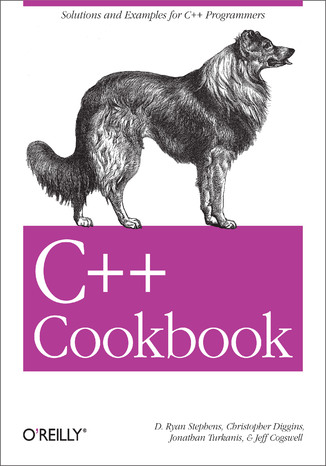



- Autorzy:
- D. Ryan Stephens, Christopher Diggins, Jonathan Turkanis
- Wydawnictwo:
- O'Reilly Media
- Ocena:
- Stron:
- 594
- Dostępne formaty:
-
ePubMobi
 opcje wysyłki »
opcje wysyłki »
Opis
książki
:
C++ Cookbook
Despite its highly adaptable and flexible nature, C++ is also one of the more complex programming languages to learn. Once mastered, however, it can help you organize and process information with amazing efficiency and quickness.
The C++ Cookbook will make your path to mastery much shorter. This practical, problem-solving guide is ideal if you're an engineer, programmer, or researcher writing an application for one of the legions of platforms on which C++ runs. The algorithms provided in C++ Cookbook will jump-start your development by giving you some basic building blocks that you don't have to develop on your own.
Less a tutorial than a problem-solver, the book addresses many of the most common problems you're likely encounter--whether you've been programming in C++ for years or you're relatively new to the language. Here are just some of the time-consuming tasks this book contains practical solutions for:
- Reading the contents of a directory
- Creating a singleton class
- Date and time parsing/arithmetic
- String and text manipulation
- Working with files
- Parsing XML
- Using the standard containers
Typical of O'Reilly's "Cookbook" series, C++ Cookbook is written in a straightforward format, featuring recipes that contain problem statements and code solutions, and apply not to hypothetical situations, but those that you're likely to encounter. A detailed explanation then follows each recipe in order to show you how and why the solution works. This question-solution-discussion format is a proven teaching method, as any fan of the "Cookbook" series can attest to. This book will move quickly to the top of your list of essential C++ references.
Wybrane bestsellery
O'Reilly Media - inne książki
Dzięki opcji "Druk na żądanie" do sprzedaży wracają tytuły Grupy Helion, które cieszyły sie dużym zainteresowaniem, a których nakład został wyprzedany.
Dla naszych Czytelników wydrukowaliśmy dodatkową pulę egzemplarzy w technice druku cyfrowego.
Co powinieneś wiedzieć o usłudze "Druk na żądanie":
- usługa obejmuje tylko widoczną poniżej listę tytułów, którą na bieżąco aktualizujemy;
- cena książki może być wyższa od początkowej ceny detalicznej, co jest spowodowane kosztami druku cyfrowego (wyższymi niż koszty tradycyjnego druku offsetowego). Obowiązująca cena jest zawsze podawana na stronie WWW książki;
- zawartość książki wraz z dodatkami (płyta CD, DVD) odpowiada jej pierwotnemu wydaniu i jest w pełni komplementarna;
- usługa nie obejmuje książek w kolorze.
Masz pytanie o konkretny tytuł? Napisz do nas: sklep@helion.pl
Książka drukowana


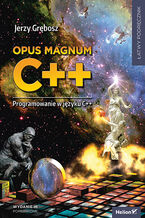
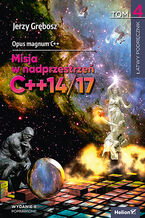
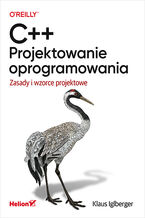
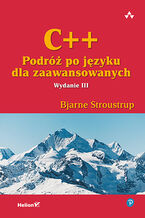
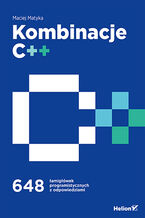
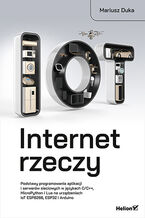
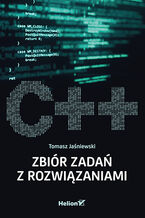
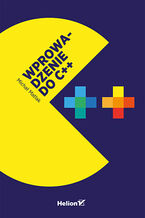
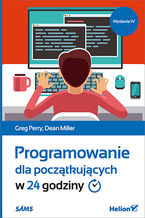
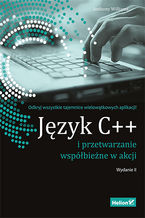

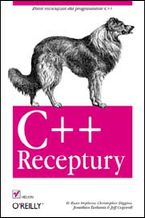





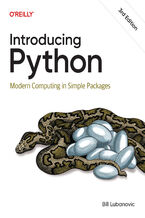

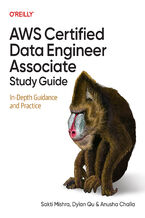
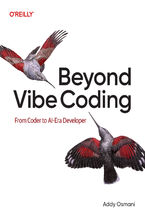
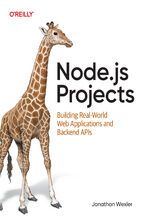
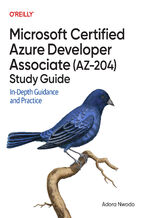
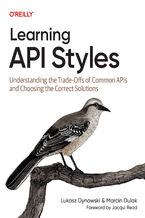
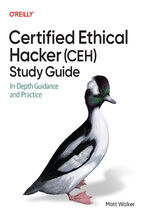
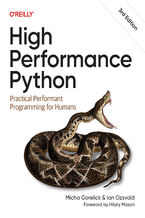
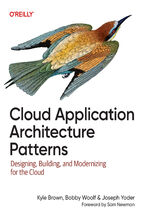
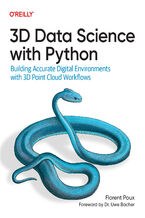



Oceny i opinie klientów: C++ Cookbook D. Ryan Stephens, Christopher Diggins, Jonathan Turkanis
(0)